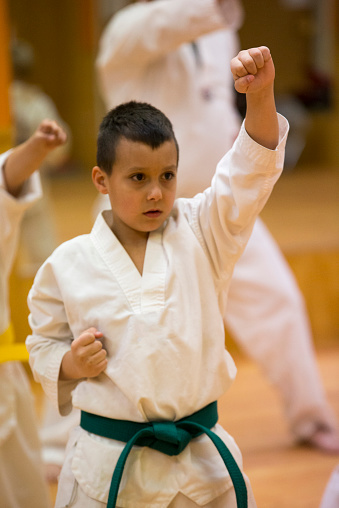Top Myths About Homeschooling
 Homeschooling in the United States has been growing at a fast rate over the last decade. Some estimates have the number of homeschoolers at over 2 million. Over the last 5 years, the number of black families in America who started to homeschool has doubled. In fact, growth in home-based learning has been highly diverse, with the number of families across all ethnic groups, regardless of income or education, on the rise.
Homeschooling in the United States has been growing at a fast rate over the last decade. Some estimates have the number of homeschoolers at over 2 million. Over the last 5 years, the number of black families in America who started to homeschool has doubled. In fact, growth in home-based learning has been highly diverse, with the number of families across all ethnic groups, regardless of income or education, on the rise.
However, homeschooling is still subject to myths and misperceptions.
Many Americans think that homeschooling is for religious families. Others things that homeschooling takes away from public schools, or that only wealthy and highly educated parents homeschool their children. One of the most prominent and recurring myths is that homeschooled children do not socialize with others, and lack the ability to function in the real world.
At Calvert, we have seen and heard all the myths. Every year we support thousands of families across the U.S. and in different countries all over the world. And every year we hear these same myths and questions.
It is time we shattered these myths about homeschooling:
Homeschooling Is Only For Religious or Faith-Based Families
Not true. The National Household Education Survey (NHES), which is conducted every four years by the U.S Department of Education’s National Center for Education Statistics (NCES), says that highest rated reason parents choose to homeschool is the negative environment of their child’s public school. The desire for religious education is not the primary reason. In fact, many families prefer secular homeschool curriculum and prefer to integrate their personal values into lessons when appropriate.
Click here to read the “Top 5 Reasons Why Parents Homeschool Their Kids”
Homeschoolers Don’t Socialize
Homeschoolers actually socialize more. The nature of personalized learning and homeschool curriculum is to explore the world more.
Learning takes place in more places than inside a classroom. Budget constraints limit the number of field trips public school students can take, whereas homeschoolers routinely visit museums, parks, science centers, and other places. Homeschoolers also participate in community service projects as part of their day. Both sets of experiences create more opportunities to socialize with adults and other people.

Also, while public school students tend to be grouped with people their same age, homeschoolers often meet up with fellow homeschoolers who are younger and older. Homeschoolers can attend live classes in small groups, take courses at learning centers, and participate in online learning and chat rooms. The end result is a wider array of social experiences with people of different ages.
Homeschoolers Are All Gifted Or Naturally Intelligent
The idea that homeschoolers are gifted or naturally intelligent is one of the newer myths we have seen – sometimes to explain away high academic achievement when compared to public schools. However, many parents seek out homeschooling because their kids need more one on one attention. Homeschooling is often a great solution for kids who are advanced learners, as well as kids who feel disengaged in school, bored by the curriculum, or struggling with a learning disability.
Homeschoolers Do Not Go To College
In truth, homeschoolers are more likely to attend college than traditionally schooled students, and once enrolled, are more likely to stay and graduate. Other data suggests that homeschooled students routinely perform better on standardized tests including the SAT and ACT. While it may be more difficult to quantify a homeschooler’s GPA compared to public school counterparts, colleges are looking less at standardized tests and GPAs and instead are looking at a student’s resume. In this area, homeschoolers have a distinct advantage, because they have more experiences to share with colleges and universities.
Homeschooling Is Not An Accepted Form Of Education
For starters, homeschooling has been around over one hundred years. In many ways, it predates our current public education system.
Second, depending on the source you look at, the number of children homeschooling is estimated to be between 1.8 million and 2.5 million. And as we mentioned above, some of the fastest growth in homeschooling has been with minority families.
Why? Put simply, every day parents see declining school budgets, poor academic ratings of schools, crime, bullying, and fewer resources. They want a change that will benefit their children, and homeschooling is well-established, with curriculum options and support groups. What’s more, homeschooling is recognized by all 50 states. To learn more about state rules, click for Calvert’s state resources.
Homeschoolers Do Not Learn As Much As Public School Students
Personalized learning is shown to improve learning because it allows the curriculum to be taught in a way that aligns with a student’s learning style. In public schools, students are all taught the same way. If they learn too quickly, they have to wait for the others to catch up. Conversely, if the material is not taught in a way a student understands, then they fall behind their peers. In both cases, public school students are more likely to become disengaged and frustrated by their learning experience. Whereas a homeschool student is in a more flexible learning environment.
Homeschoolers Just Play Video Games All Day
Parents do not withdraw their kids from public or private school so they can play video games all day. In fact, because homeschooling is a lifestyle choice and requires substantial planning, homeschooled children are more likely to be more active, engaged, and involved in their learning.
Parents Are Not Qualified To Teach
Every parent has anxiety about their child’s education and whether or not they can be a good enough teacher. From the earliest days after they are born, to the moment they leave for college, what our children need to learn and how well they are learning, dominate our thinking as parents.
We do not often think about it, but the knowledge we pass on to our children from the day they are born throughout their life is substantial and significant. It goes well beyond the ability to read, write, understand numbers, or appreciate art and culture. In fact, we teach our children an infinite number of things, including manners, empathy, how to walk, how to get dressed, how to reason, how to learn, and more.
The fact is – parents are more than qualified to teach their children. And at Calvert, we provide more than just a curriculum; we provide a support network of parents and staff that can answer questions and provide the resources and strategies necessary to ensure that you are a successful homeschool teacher.
For more reassurance, click to read, “Parents Are Natural Teachers: Why Every Parent Needs To Get Involved In Their Child’s Learning.”
Homeschooled Kids Cannot Play Sports Or Participate In Extracurricular Activities
 What many parents do not know is that many local school boards allow homeschoolers to play in public school sports or participate in after-school activities. Outside of school, many homeschooled kids play in recreational leagues, participate in Tae Kwon Do programs, and a number of other extracurricular activities and community service projects.
What many parents do not know is that many local school boards allow homeschoolers to play in public school sports or participate in after-school activities. Outside of school, many homeschooled kids play in recreational leagues, participate in Tae Kwon Do programs, and a number of other extracurricular activities and community service projects.
Because the key to homeschooling is providing families with flexibility, there is no shortage of time for kids to be active outside their daily learning. In fact, many Calvert students are accomplished athletes, artists, musicians, and more – using homeschooling to help them pursue their passions and talents in ways that public school does not allow.
Homeschooling Is Only Done In The United States
With so much discussion about homeschooling in the U.S., it might seem like it is an educational option reserved for Americans. While there are a large number of Americans who homeschool, both in the U.S. and abroad, other countries allow homeschooling and have growing homeschool communities. In Europe, virtually every country, except Germany, allows homeschooling with the United Kingdom and France very popular for homeschoolers. According to research from Calvert Education, homeschooling also has been growing in the Middle East, especially in the United Arab Emirates and Saudi Arabia. In Africa, homeschooling has remained very popular in Egypt, South Africa, Kenya, and Ghana. And homeschooling has exploded in several other countries, including India, Brazil, and China.
Homeschooling Parents Are Stay At Home Moms Who Don’t Work
For many years, a strong myth we have heard is that homeschool teachers are stay-at-home moms who don’t work. Like any family, there are some homeschoolers who do have stay-at-home parents (moms or dads), but many have both parents working, or have single parent households. How do they do it? Through a combination of hard work, cooperation, and support from other homeschooling families, parents who rely on two incomes can find ways to homeschool. It is important to remember, homeschooling is personalized and flexible, so by its nature – you can mold it to fit your family’s needs as best as possible.
If you are considering homeschooling, and have heard some of these myths or others, please reach out to us. We would be happy to speak with you and help put them to rest. Call us at: 1-888-487-4652.


